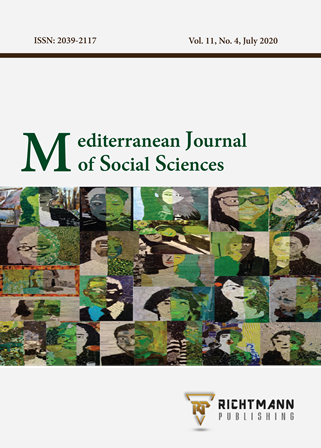The Determinants of Well-Being During a Time of Economic Growth: The Case of Selected European Union Member States
DOI:
https://doi.org/10.36941/mjss-2020-0040Abstract
The primary aim of this study is to analyse any changes in the role of well-being determinants which may have occurred over a period of economic growth in the European Union. To this end, this study revolves around testing the hypothesis that non-income determinants of well-being, such as attendance to religious events and involvement in sports, amass greater importance during a period of economic growth, potentially at the expense of income. This hypothesis is tested using the latest two European Quality of Life Surveys, published by Eurofound for 2011 and 2016. Using microdata only from the ten European countries whose real GDP per capita increased by at least ten per cent between the two waves of the survey, a well-being function is specified for each year, based on well-known findings from the well-being literature. Given the ordered nature of the dependent variable, an ordered logit model is employed and interpreted in terms of average marginal effects. Among other results, findings point towards a decline in the importance of income and greater roles for housing quality and frequent participation in sports and in religious activities during this period of economic growth. These findings should inform and guide policy makers in putting in place policies to facilitate well-being improvements in the European Union and beyond.
Downloads
Downloads
Published
Issue
Section
License
This work is licensed under a Creative Commons Attribution-NonCommercial 4.0 International License.











